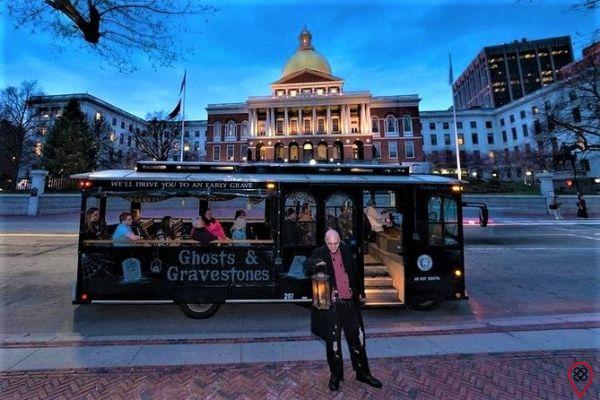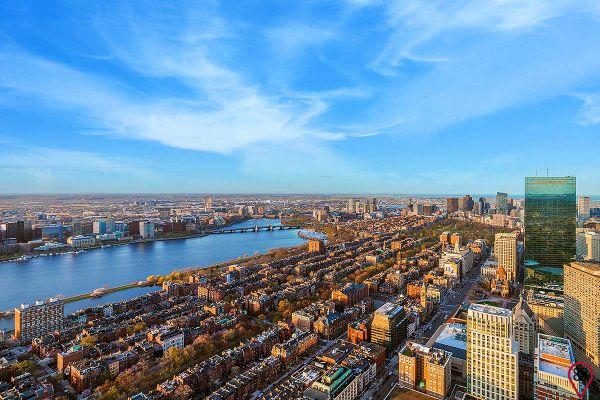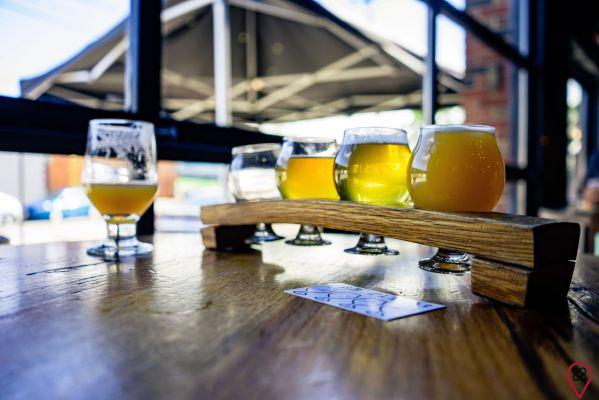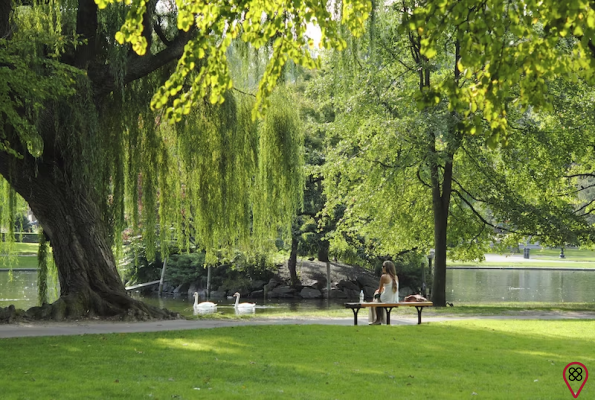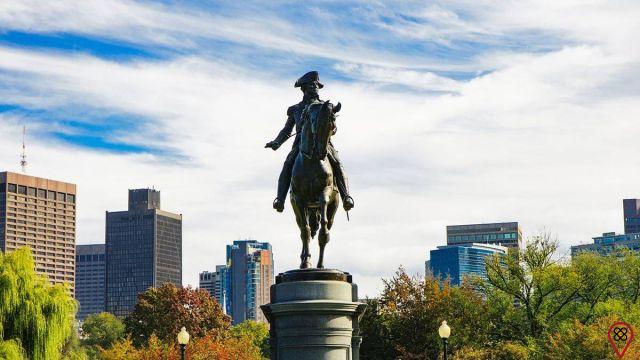
Living History: Monuments and Historic Sites of Boston
Boston, known as the birthplace of the American Revolution, holds a significant place in American history. The city witnessed numerous historic events that ignited the War of Independence, making it a vital military and strategic objective for both British forces and the colonists. Today, Boston's rich history is preserved through various monuments and historic sites that tell the story of the city's importance in the birth of the United States of America.
Historical Context and Evolution
Boston served as the capital of the Province of Massachusetts Bay and the center of trade and commerce during colonial times. The Revolutionary War, which began in April 1775, further solidified its role as a crucial location in the fight for independence. The Freedom Trail, a 2.5-mile-long trail, encompasses all the sites that played a significant role in Boston's history and the birth of the United States.
One of the most important events in Boston's history was the Boston Tea Party of 1773. The Boston Tea Party Ships & Museum, a floating history museum, focuses on this event and its role as a key trigger of the American War of Independence. The museum features live reenactments, multimedia exhibits, and two replica ships from the period, Eleanor and Beaver. It also houses one of the two known tea chests from the original event, making it a must-visit for history enthusiasts.
Boston Common, established in 1634, holds the distinction of being the oldest public park in the United States. Originally purchased by Puritan colonists, it has remained a treasured remnant of 17th century Boston. Families and visitors come to the Common to enjoy leisure activities such as strolling, jogging, skating on the Frog Pond, and playing in the fields.
The USS Constitution Museum is another significant site in Boston. It is a floating museum dedicated to the USS Constitution, the oldest commissioned ship in the United States Navy that is still afloat. Built in Boston in 1797, the USS Constitution played a crucial role in the War of 1812, defeating four British frigates in three separate engagements. Today, the museum allows visitors to explore the ship's history and learn about its remarkable achievements.
The Bunker Hill Monument stands as a memorial to the Battle of Bunker Hill, a pivotal moment in the American Revolution. The monument, located on Breed's Hill, offers visitors the opportunity to climb to the top and enjoy stunning views from its observation deck. It serves as a reminder of the sacrifices made by the militias of Massachusetts, Connecticut, New Hampshire, and Rhode Island in their fight for independence.
Faneuil Hall, a marketplace and meeting hall, holds historical significance as the site of several speeches by Founding Fathers who encouraged independence from Great Britain. Today, it is part of the Boston National Historical Park and a popular stop on The Freedom Trail. The Old South Meeting House, another historic congregational church, gained fame as the organizing point for the Boston Tea Party in 1773. It became a symbol of free speech in Boston and served as an alternative to Faneuil Hall for town meetings.
Old North Church, Boston's oldest church, played a crucial role in the American Revolution, particularly in Paul Revere's Midnight Ride. It still functions as an Episcopal house of worship and a museum, allowing visitors to appreciate its architecture and hear the tolling of the oldest bells in America. The Paul Revere House, the home of Paul Revere and his family, is another significant site. Revere's famous ride on the eve of April 18, 1775, warning of British forces, is one of the most iconic moments in American history.
The Old State House, part of the Boston Massacre of 1770, witnessed both tragic and triumphant events during the American Revolution. It now stands as one of the sites included in The Freedom Trail, reminding visitors of the struggle for independence.
Analytical Insights
Examining the historical sites and monuments in Boston provides valuable insights into the city's role in shaping American history. The following table highlights key information about each site:
| Site | Year Established | Significance |
|---|---|---|
| Boston Tea Party Ships & Museum | N/A | Focuses on the Boston Tea Party and its impact on the American War of Independence |
| Boston Common | 1634 | Oldest public park in the United States |
| USS Constitution Museum | N/A | Dedicated to the oldest commissioned ship in the United States Navy |
| Bunker Hill Monument | 1825 | Memorializes the Battle of Bunker Hill |
| Faneuil Hall | 1743 | Site of speeches by Founding Fathers advocating for independence |
| Old South Meeting House | 1729 | Organizing point for the Boston Tea Party |
| Old North Church | 1723 | Boston's oldest church and significant location in Paul Revere's Midnight Ride |
| Paul Revere House | 1680 | Home of Paul Revere and his family during the American Revolution |
| Old State House | 1713 | Played a role in the Boston Massacre and the reading of the Declaration of Independence |
These sites collectively offer a comprehensive view of Boston's historical significance and its contribution to the birth of the United States.
Future Outlook
The preservation and promotion of Boston's monuments and historic sites are crucial for future generations to understand and appreciate the city's role in American history. Efforts should be made to continue maintaining and improving these sites, ensuring their accessibility and educational value. Additionally, leveraging technology and interactive exhibits can enhance the visitor experience and make history come alive.
Furthermore, ongoing research and archaeological discoveries may uncover new insights and artifacts, enriching our understanding of Boston's past. Collaborations between historians, preservationists, and the local community can contribute to the continued preservation and interpretation of these important landmarks.
As Boston moves forward, it must embrace its living history and ensure that these monuments and historic sites remain integral parts of the city's identity. By doing so, Boston can continue to inspire and educate future generations about the struggles and triumphs that shaped the nation.



